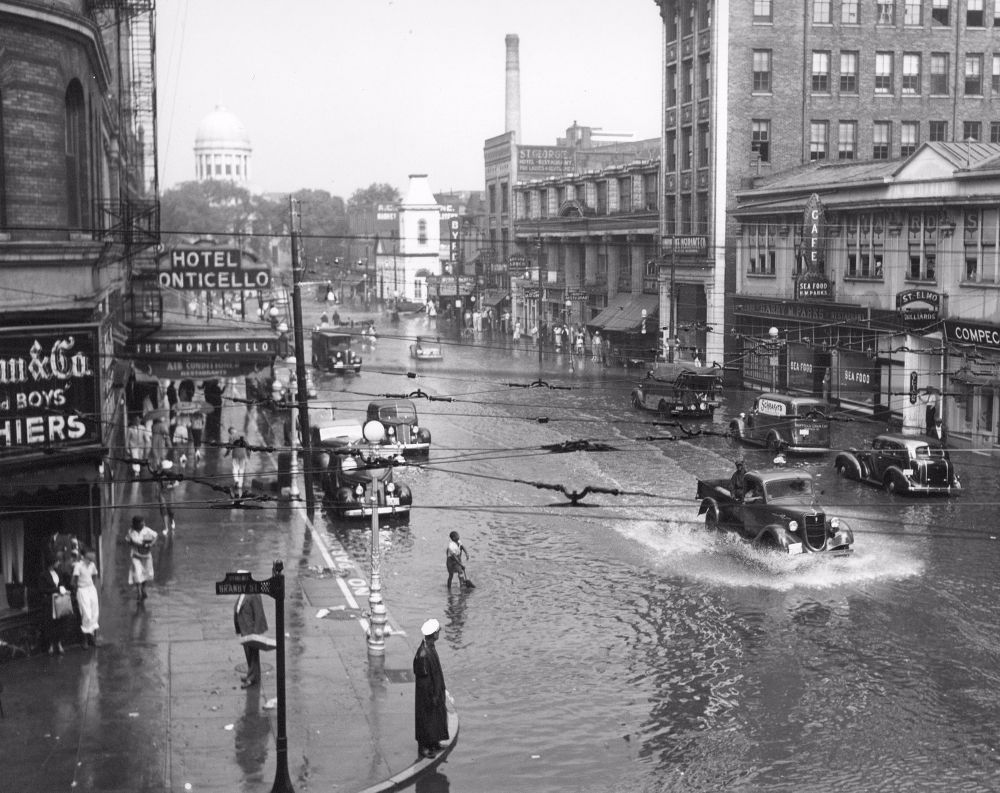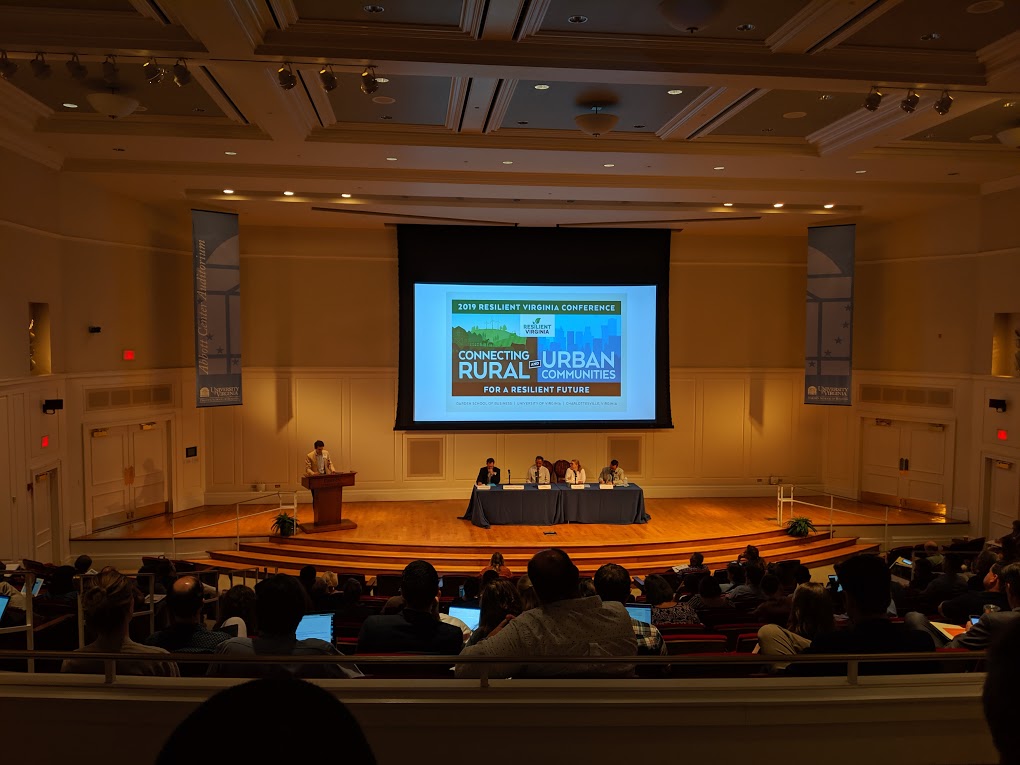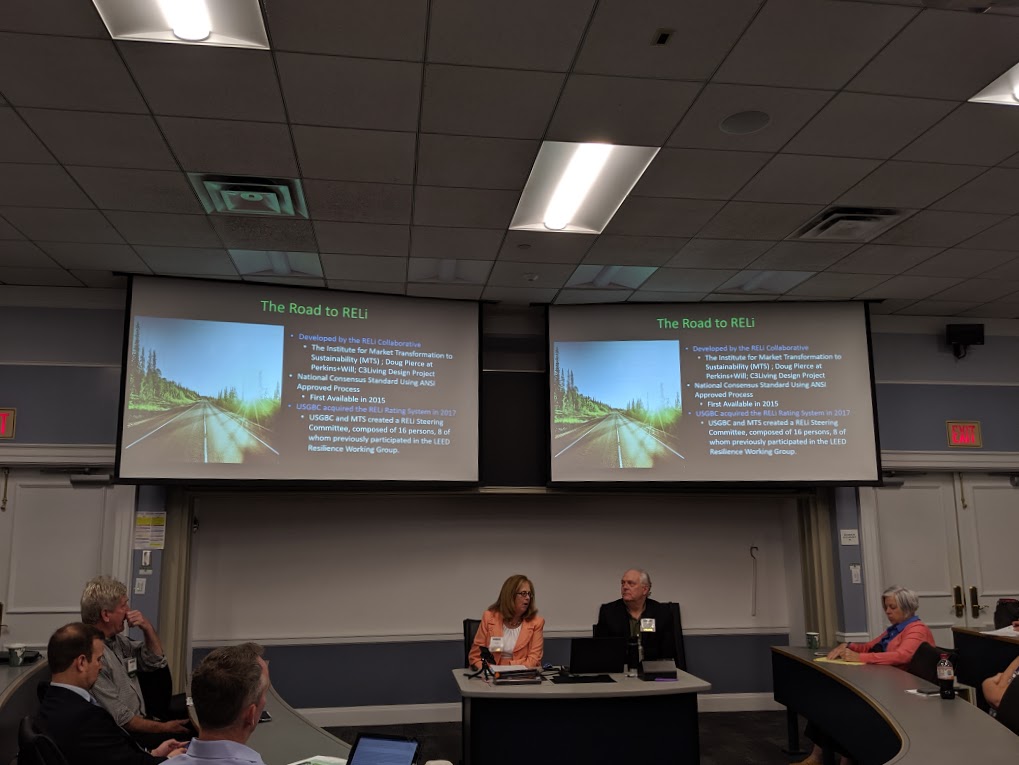Submitted by Mert Kansu
Resilient Virginia held its "2019 Resilient Virginia Conference" last month
United States Architecture News - Aug 06, 2019 - 19:56 11965 views

The 2019 Resilient Virginia Conference was held at University of Virginia, Darden School of Business. This year's conference was focused on how resilience could be achieved by connecting urban and rural communities. Resilience can have vastly different interpretations and definitions. Thus conference focused on creating connections between communities to create a more resilient population against, climatic, economic, political shocks. The conference, bringing many experts, professionals and academics from different fields, highlighted the importance of communication and collaboration among various fields, with a big reminder on the urgency to take action on resilience.

Image © Mert Kansu
The conference was held on July 18-19 and had extensive plenary sessions with smaller break-out sessions. Attendees were able to join the workshops focused on the topics; agricultural and resiliency planning for communities, economy, infrastructural resilience and mitigation, and preparedness towards resiliency.
The new opportunities towards the resiliency inspired me, yet, made me feel the significant differences between my community and US in taking meaningful steps towards the topic. Joshua Saks, who is the Deputy Secretary of Natural Resources in Virginia, started his talk by stating that Virginia was 'late to the party'.
"While many states like Louisiana and Florida already have detailed masterplans towards planning resilient communities and cities, Virginia has just started this process. This effort was surely applaudable, but I wondered why there wasn’t more emphasis on resiliency of communities, social, economical and racial inequity that seems to show itself more in times of disasters," he added.
In a breakout session, Barbara Brown Wilson, an associate professor at UVA Department of Urban and Environmental Planning and the author of "Resilience for All: Striving for Equity Through Community-Driven Design" book, talked about the importance of working to create equity through community-based design. Anthony Flaccavento, also, a very well-versed farmer, pointed out the importance of making our rural lands more resilient. He touched on the importance of having an equitable chain of production and a 'farm to the table' mentality, reducing waste, creating a cycle where people are aware of what and how they consume goods. He also pointed out the fact that while the current consensus seems to be that profitable "brick and mortar" structures are what designates if the land is developed or undeveloped.

Image courtesy of anthonyflaccavento.com
Another break out session explained the certification systems RELi, LEED for Cities and LEED for Communities, and the latest developments in them. RELi which is a relativeely new certification system that evaluates a project’s resilience, looking at wide array parameters, is pioneered by Douglas Pierce, a LEED Fellow and an associate at Perkins+Will. RELi aims to cover a large gradient of problems that not only buildings but also building users and communities. RELi’s array of credit categories provide guidelines for achieving the standard for climatic, economic, social, and even phycological resilience. RELi’s system sets extensive requirements and high standards ranging from types of emergency power systems, their minimum duration of operation to having a ready stock of food and material supply to even having community gardens to provide organic food to users in times of prolonged disasters.
RELi system is now in the works of integrating its system with LEED to create ease of achieving the certificate if projects have already gained appropriate credits in LEED. On this new GBCI-RELi partnership, President and CEO, USGBC and GBCI, Mahesh Ramanujam has said: "We are committed to scaling RELi to become a national and international rating system managed by USGBC and its partner Green Business Certification Inc."

Image © Mert Kansu
People from many sectors consider resiliency in their ways. Some of them are developing new ideas or policies, while some are working on the system. However, conferences like this that gather all invested parties is proof that a wicked problem such as achieving climatic, social, economic, or psychological resilience is only possible when everyone works together, in a synergy.
From the 2019 Resilient Virginia Conference, the big takeout lesson for me was that this effort is like mountain climbing. All actors are attached to the same rope. If one of us fail, it puts stress to all others in the team. To reach the summit together, we have to take well thought, safe and sensible steps..
Top image: Flooding in Norfolk,VA, 1933. Image Courtesy of Virginia Gov.
